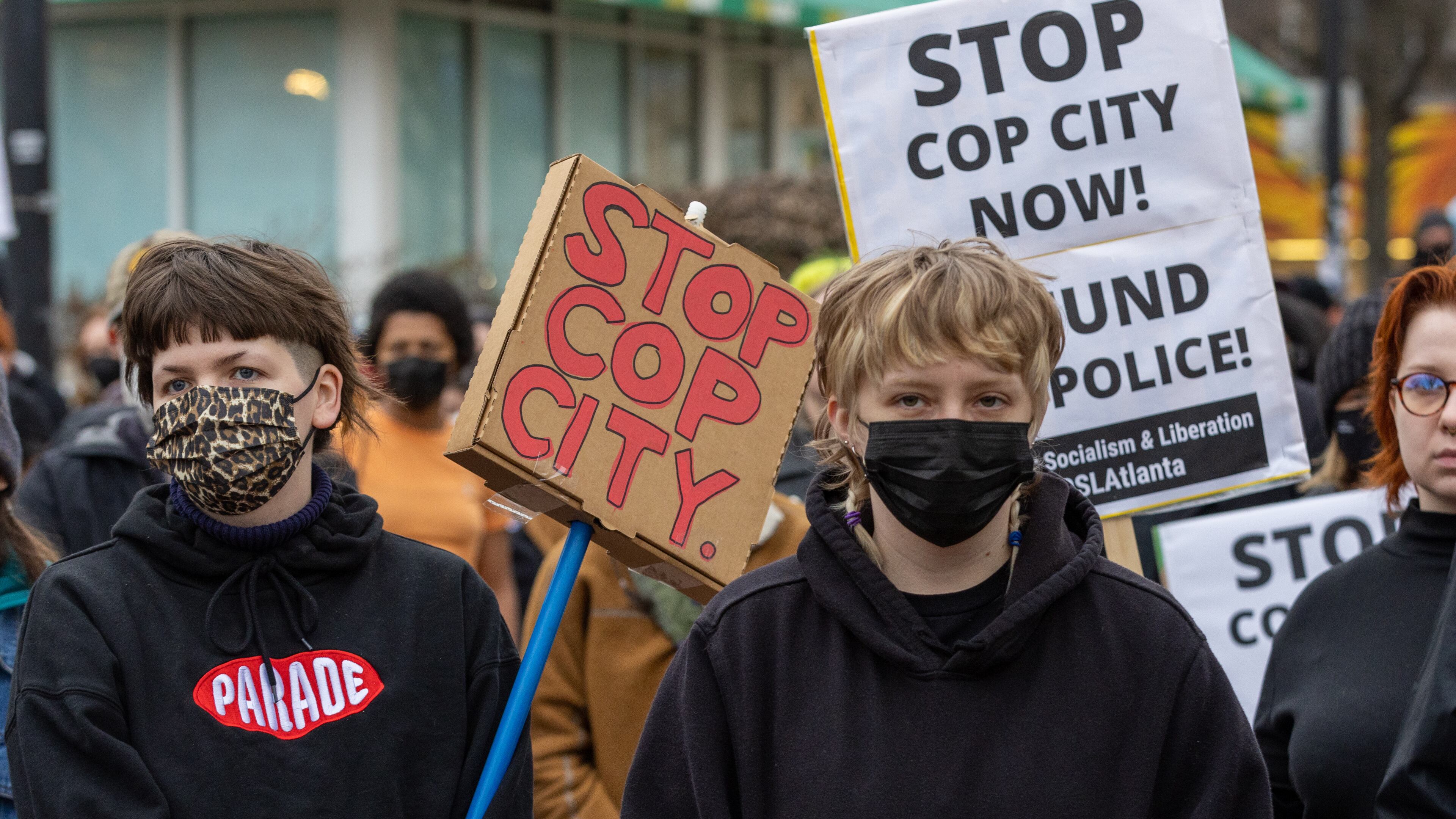OPINION: Training center must be community-focused, not Rambo’s playground

Despite protracted protests, the Atlanta public safety training appears to be a done deal. The city council will next month almost assuredly approve the city’s $30 million-plus offering to make the 85-acre, $90 million facility happen.
So the city must now make the so-called “Cop City” the opposite of what detractors claim it will be.
During last week’s City Council meeting, numerous opponents called the planned facility “militarized,” as in a place where cops learn to wage war against Black people.
City officials must rebut that. They need to assure the public this will not be Rambo’s playground.
It needs to be made clear this is not be a place where cops simply run around in military-style uniforms and learn how to be door-kicking urban warriors. This needs to be where ideas from President Barack Obama’s Task Force on 21st Century Policing are put into action.
The 21st Century recommendations came about after the 2014 fatal police shooting of Michael Brown in Ferguson, Missouri. The task force came up with a policing model with six “pillars:” building trust and legitimacy; policy and oversight; technology and social media; community policing and crime reduction; training and education; and officer wellness and safety.
Atlanta has always crowed about being “world class.” Here’s an opportunity to move its police force in that direction.
In 2016, I was struck by a speech made by an aging law enforcement veteran to an auditorium packed with police brass.

Ken Vance, who headed the state’s training center, became emotional and said he had grown increasingly tired. Tired of the “warrior” mentality common in police circles. Tired of cops driving around talking on cellphones. Tired of them not stopping to “talk to that woman on the porch.”
“Stand up and help someone,” he urged the gathering. “We have to teach people how to talk to each other again.”
Later, he told me, “Protect and serve means a lot to me. Let’s quit grouping ourselves as guardians, as warriors, as sheepdogs or whatever the current vernacular is. We have a duty — and I’m big on duty. It’s all about responsibility, about courage, about humanity, about service.”
Vance’s words came four years before George Floyd and now ring more true than ever.
After Michael Brown, and again after George Floyd, we continually heard from critics and experts talking about the importance of proper police training.
Atlanta’s new training center must be where de-escalation techniques are instilled in cops, where officers learn how to deal with people having mental illness crises, where they are taught interpersonal skills to help build inroads to the community.
Sure, that’s probably not as fun as burning rubber or shooting targets. But those are vital skills in building trust in the community, a bond that has been broken.
The city of Atlanta has been terrible about getting the word out about what this facility aims to be. The Stop Cop City contingent has largely eaten Mayor Andre Dickens’ lunch in the narrative game. The theme that this will loose killer cops on society AND kill the environment has so far stuck with a chunk of the population.
Former Mayor Keisha Lance Bottoms proposed the facility in 2021, just months after having criticized police during the tumultuous summer of 2020. But 2021 was an election year, and an increasing rate of violent crime was on the public’s mind.

It still is. In a recent meeting, Councilwoman Marcie Collier Overstreet told Chief Darin Schierbaum that residents in Southwest Atlanta were “desperately hoping to get more officers in the district.” She added “the mindset is changing slowly but surely, especially compared to four years ago, on how we are interacting with our police officers.”
Confusion about the facility has continued. In fact, many believe that the Atlanta Police Foundation, a semi-secretive non-profit, will deliver the training.
Asked that question last week in a committee meeting, Schierbaum told the City Council that by law, the department does it. The Police Foundation just raises money to augment the department.
The James M. Cox Foundation, the charitable arm of Cox Enterprises which owns The AJC, has contributed to the training center fundraising campaign, as have several other local foundations.
In an interview, Schierbaum told me the training will be set up by his department to “create a culture of respect and innovation and being trusted.”
He said the “21st Century” model is vital and will be the core of the training. And there’s an entire building devoted mainly to that.
“We are repairing that trust or reinforcing that trust in every call that we respond to,” he said. The chief said that the public would be allowed to view some of the training, to use walking paths and use some of the buildings on campus for public meetings.
It is vital that the public knows what their cops are being taught. It is also important that learning is carried out in real life.
“We want to build bridges to the public,” Schierbaum said.
After the protests and conflict during the past year, a bridge would be welcome.


